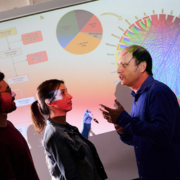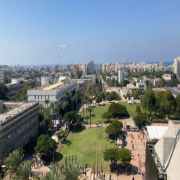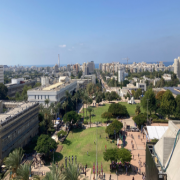TAU empowers refugees with medical course
United Nations-supported program assists and empowers community of asylum seekers
Last month, sixteen Eritrean refugees in Israel completed a medical interpreting course created by Prof. Galia Sabar of Tel Aviv University's Department of Middle Eastern and African Studies. Eight of the asylum-seeking graduates have already joined the Israeli health system as medical translators.
"Language barriers are acute between Eritrean asylum seekers and medical personnel in Israel, leading to mistrust, hostility and the inability or difficulty to provide quality health care," said Prof. Sabar. "We wanted to empower Eritrean asylum seekers by providing them with excellent professional training that would not only enable them to thrive as individuals in Israel, but would also assist a large segment of the Eritrean community."
The four-month course, supported by the UN High Commissioner for Refugees, was launched in collaboration with Dr. Shiri Tenenbaum, Head of the Social Clinic at Chaim Sheba Medical Center at Tel Hashomer, and medical interpreting expert Dr. Michal Schuster. It covered various principles behind medical translation from English to the Tigrinya language, and dealt with, among other topics, the human body and doctor-patient communication.
Empowering an immigrant community
According to Prof. Sabar, many of the 50,000 Eritrean asylum seekers in Israel can't speak English or Hebrew and therefore have no way of describing their symptoms to Israeli doctors, leaving them in dire straits. "These 16 men and women, all Eritreans seeking asylum in Israel, can now seek work in this very valued and appreciated profession, either in Israel or anywhere else in the world," said Prof. Sabar. "For many of them, this course represents the first time they were treated as subjects rather than objects, as agents of change rather than passive people seeking help.
"By providing the participants with vocational training they can use anywhere in the world, TAU also provides a tremendous starting point for a better future," Prof. Sabar added. "This course is a testament to TAU's commitment to combining excellent research and social responsibility."
This story was originally published by AFTAU.





